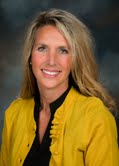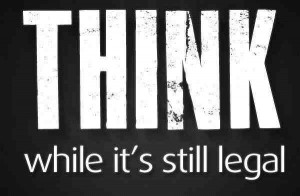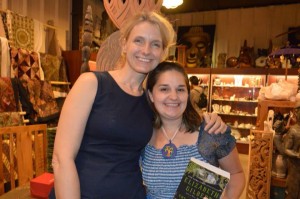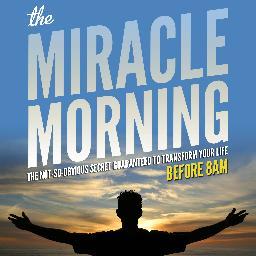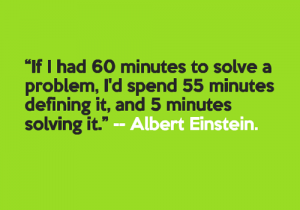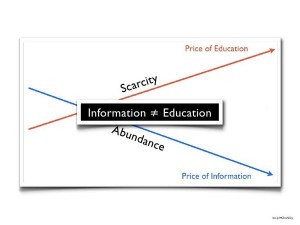
Source: Will Richardson
Two days ago I blogged about how 90% of the world’s information was created in the past two years. As I went through my twitter feed today, I saw a tweet from Laura Gilchrist, who attended a Keynote given by Will Richardson, that peeked my curiosity (see image to the left). It is funny (or ironic, or just part of the Big Data) that I have been thinking about this topic and how it relates to being a Principal. Of course, Will nailed it! As the amount of information increases, the value of it declines. Therefore, the price of education rises. I went onto his presentation (you can too) and he furthers explains the problems with this dilemma by saying “Big things happen in Big gaps.” He goes on to ask, “Where will you get your education?”
Now, I could be misreading Will’s presentation or making broad generalizations, and if so I will correct….. But the point is this, our job as educators is to provide the opportunities for students to fill in the gaps. Seems impossible, right? How will they “know” all this information? See, that’s the rub… they can’t and they won’t if we continue to do things the SAME way. Will offers a few suggestions to address this dilemma:
Content and Knowledge are everywhere
Teachers are everywhere
Data is everywhere
Networks are the new classrooms
Learning is everywhere (Will Richardson)
He also suggests that we, “Unlearn delivery, competition and assessment.” This is so paramount to the original premise of understanding “Big Data” and the true meaning of 21st Century learning. Now, if only the various departments of education can understand this, and let us implement it.
Here is his complete presentation. I highly recommend that you follow Will on Twitter, check out his blog, and read his books.


